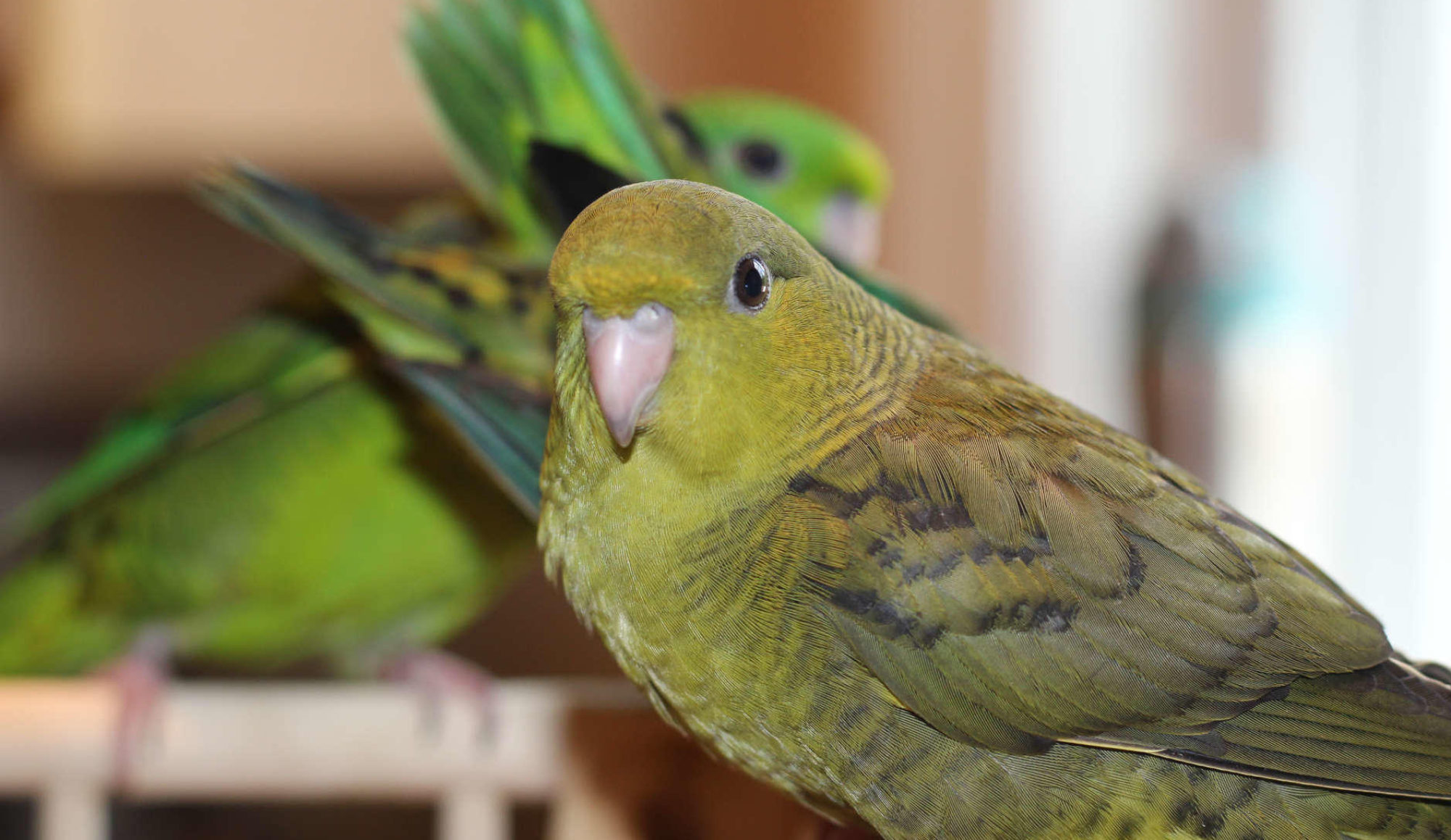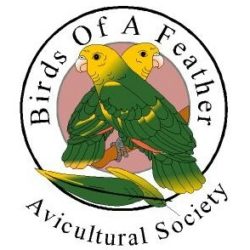- Overheated non-stick cookware.
- Air fresheners (especially plug-ins).
- Aerosol sprays (hairspray, paint, shoe dyes, water repellents, household cleaners, insect sprays/killers/repellents/flea spray, etc.).
- Finger nail polish and remover.
- Lead (can be found in many places you may not be aware of including: window calking, wine bottles, paint, stained glass, old window sashes and old houses).
- Zinc poisoning – new cages fabricated with hardware cloth (wire) need to be washed with a vinegar rinse before use.
- Vitamin overdosing (Don’t overdo it with vitamin use, especially with pellets in the diet. Vitamins in the drinking water can cause an infection in your bird which eventually leads to death).
- Polyurethane being applied in another part of the house can travel through the airways and air systems.
- Diseases – They can linger in cages and airspace for months. If you bring a new bird into your home where a previous bird died, it is possible that the new bird will die from the same disease (this often happens without the owners knowing that their previous bird had a contagious disease).
- Cat bites that are not obvious or severe looking need to be treated immediately with antibiotics by an avian vet — the bacteria in a cat’s mouth is very deadly and fast moving in birds.
- Windows and mirrors. Birds can easily break their necks or receive a fatal blow to the head by flying into these objects. They are trying to fly through them but don’t realize they can’t.
- Steam coming from hot food cooking on the stove will attract birds who will fly right into a hot pan.
- Uncovered toilets, buckets of water or other liquids, sinks filled with water, fish tanks, etc. can attract and drown a bird.
- Dogs can bring a heavy paw down too hard on a bird and kill it.
- Ferrets and lizards might eat your bird.
- A bird with poor wing clipping can fall and break its breast bone or beak, causing serious injury requiring extensive care from an avian vet. Some people may not be able to afford this and will choose euthanasia over saving the bird.
- Veterinarians – It is imperative to locate a qualified AVIAN vet before you need one in an emergency situation. The average practicing vet is not schooled in the care of parrots and make a fatal mistake while intending to help.
- Sunflower seed – Feeding a diet heavy with sunflower seed is likely to cause damage to a parrot in captivity. Sunflower seed, peanuts, etc. are heavy in fat and may cause your parrot to become overweight. Liver damage may result Some birds living on such diets for a long period of time end up having heart attacks when placed under stress. Do not feed sunflower seeds to Amazons more so than any other specie, except Lories which should not be fed dry seed at all.
- Dremmel tools used to grind beaks and toenails have been known to stress a bird enough to induce a heart attacks. Do not allow a Dremmel tool to be used on a bird that is easily stressed or an imported Amazon that has had a diet rich in fatty foods such as sunflower seeds and peanuts.
- Cigarette smoke – BAD!!
- Avacado – This is a controversial topic. Some birds die from eating it, some owners feed it with no ill effect. [ed. my recommendation: avoid it]
- Other birds – birds may fight when placed together. Never put two or more birds together without watching for compatibility. Watch large birds around small bird. Watch birds that land on other birds cages. Do not put two female lovebirds in the same cage. Do not add a new bird into an established territory.
- Corn cob bedding can quickly turn moldy and cause deadly illnesses. Some birds will eat the corn cob and it then may build up inside of them resulting in a blockage. Birds are able to reach the smallest of spacings in a grate to get at it.
- Young children should be supervised by an adult.
- Cage covers or other materials around a bird’s cage can be pulled through the bars and chewed on. The resulting holes can entangle the bird and strangle it, or hang it up on the cage panicking the bird which may also lead to death. Threads can also be a problem both internally and externally. Externally they may wrap around toes and not be seen until a toe falls off. Or, they may entangle other parts of the body.
- Ceiling fans should never be running whenever a bird can get at them.
- Electrical cords within beak reach will be chewed on and will electrocute the bird.
- Toys should be examined for safety – just because a toy is on the market doesn’t make it safe! Many of the most popular toys on the market carry serious safety risk factors. Some of them include cotton rope, rags or cloth with threads hanging out of them (or even finely sewn cloth), bells, clips that attach the toy to the cage, etc.
- Doors. Birds like to sit on the tops of open doors. They can be killed if someone closes the door or the wind blows it shut.
- Flypaper and mousetraps – Deadly!
- Rolling over in bed onto the bird.
- Stepping or sitting on the bird.
- Feather picking. There are many causes for this and left untreated may lead to death through a variety of various effects. Some causes are bacterial infection, Giardia, infection from self mutilation, both internal and external parasites , brutality from other birds including mates, psychological reasons, physical ailments, cigarette smoke, lack of proper lighting on a long term basis, change of home or owner, lack of exercise, lack of interaction with owner, poor siting of the cage such as in a high traffic area or near other types of animals, sexual maturity and the need to be placed in a breeding situation.
- Soaps of various types can cause serious illness or death.
- House plants – some may be poisonous to your bird.
- Plastic items that jump out of place in the dishwasher and get stuck against the heating coil.
- Hospital germicides or disinfectants sprayed in one part of the house can kill birds in another part of the house.
- Any repairman or serviceman that comes into your home must be questioned, briefed and watched for any substances he may use that can be toxic to your bird(s).
- Falling into a filthy waste basket can cause bacterial infection eventually leading to death or death within minutes if the contents are toxic to birds.
- Being left in a very sunny window where the bird can not escape the heat on its own. Many owners overheat their birds believing that the need to be kept in hot humid rooms.
Compiled by Debbie Stahre (Hookbill Haven)
Copyright © 1998 BOAF

